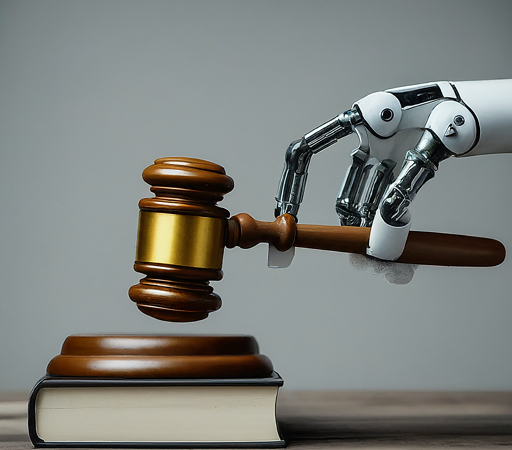Introduction: The Rise of the AI Lawyer Hi there! I’m Sarah, a legal tech enthusiast with over 15 years of experience navigating the ever-evolving legal landscape. Today, we’re diving into the world of AI legal tools, a rapidly growing trend promising to revolutionize legal research, document review, and even case strategy. But before you get
Introduction: The Rise of the AI Lawyer
Hi there! I’m Sarah, a legal tech enthusiast with over 15 years of experience navigating the ever-evolving legal landscape. Today, we’re diving into the world of AI legal tools, a rapidly growing trend promising to revolutionize legal research, document review, and even case strategy. But before you get swept away by the allure of AI assistants, it’s crucial to understand their limitations.
What Are AI Legal Tools?
Imagine a super-powered legal assistant that tirelessly combs through mountains of legal documents, flags relevant case law, and even drafts basic contracts. That’s the potential of AI legal tools. These software programs utilize complex algorithms to analyze legal data and provide insights to lawyers and business professionals.
The Allure of AI: Speed, Efficiency, and Cost Savings
Let’s face it, legal tasks can be time-consuming and expensive. AI tools offer a compelling solution, promising to:
- Boost Efficiency: AI can analyze vast amounts of data in seconds, freeing up lawyers’ time for more strategic tasks.
- Reduce Costs: Automating repetitive tasks can significantly lower legal fees, making legal services more accessible.
- Increase Accuracy: AI can identify patterns and connections that humans might miss, potentially leading to improved outcomes.
The Dark Side of Hallucinations: When AI Gets the Law Wrong
Here’s the catch: AI is still under development. A recent study by Stanford Law School revealed a concerning trend – AI legal tools can sometimes “hallucinate,” meaning they fabricate information or misinterpret legal principles. This can have disastrous consequences, leading to:
- Misguided Decisions: Relying on faulty legal advice from AI could lead to poor case strategies or flawed contracts.
- Ethical Dilemmas: AI tools may not consider the nuances of human behavior or ethical considerations, potentially leading to biased or unfair outcomes.

Picture by: Google Gemini
Safeguarding Your Legal Journey: How to Use AI Tools Wisely
Don’t write off AI just yet! These tools can be valuable assets when used judiciously. Here’s how to ensure safe and effective use of AI:
- Treat AI as a Tool, Not a Lawyer: AI is a powerful research assistant, but it cannot replace the critical thinking and judgment of a qualified attorney.
- Verify Everything: Always double-check AI-generated outputs against reliable legal sources.
- Focus on the Right Tasks: Use AI for tasks like legal research and document review, where its strengths lie.
Informative Table: AI Legal Tools: Strengths & Weaknesses
| Feature | Strength | Weakness |
|---|---|---|
| Speed | Analyzes data quickly | May miss important details |
| Efficiency | Automates repetitive tasks | Limited understanding of legal complexities |
| Cost Savings | Reduces legal fees | Can’t replace human judgment |
Human Expertise Remains Irreplaceable: The Lawyer’s Role in the AI Age
While AI is undeniably transforming the legal field, the human lawyer remains irreplaceable. Lawyers bring experience, critical thinking, and a deep understanding of the law that AI cannot replicate.
Conclusion: AI as a Partner, Not a Replacement
AI legal tools are a powerful force with the potential to streamline legal processes. However, it’s crucial to approach them with caution and remember that AI is here to assist, not replace, human legal expertise. By using AI strategically and maintaining a healthy dose of skepticism, legal professionals and business owners can leverage this technology to achieve better outcomes.
















